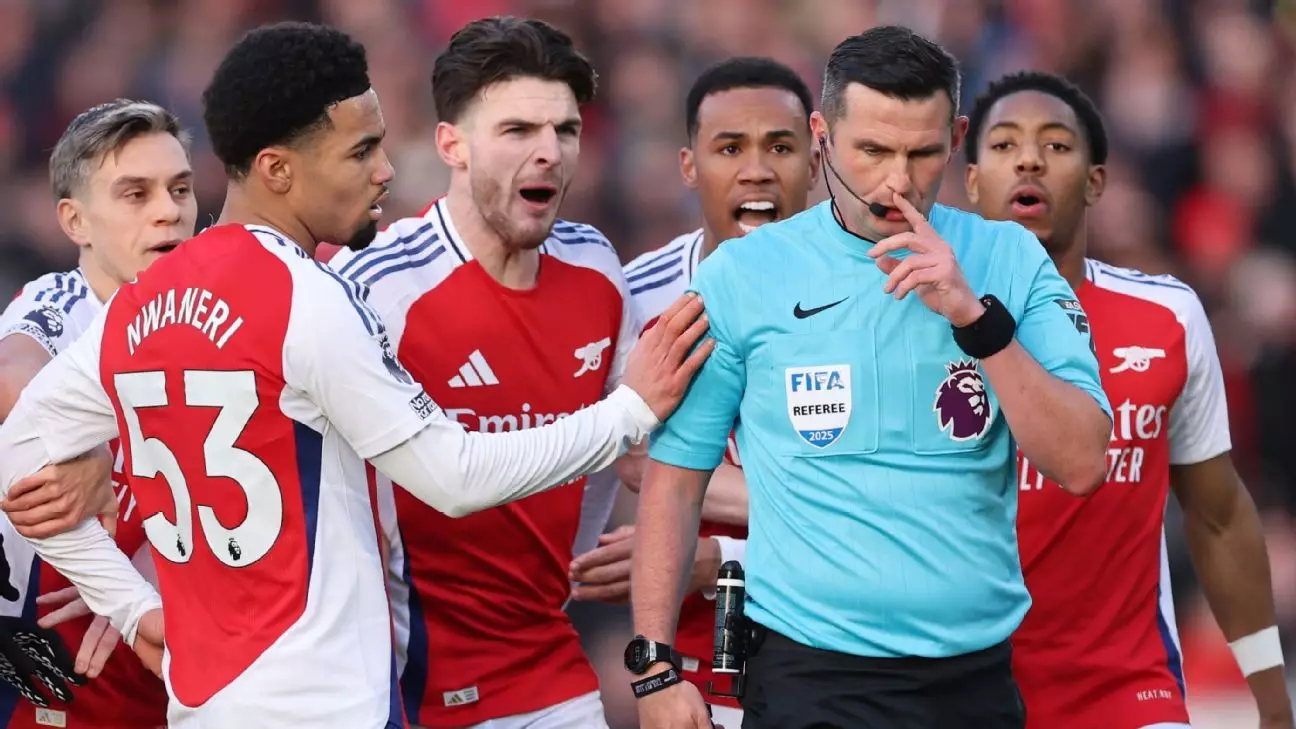Arsenal Football Club has found itself in hot water after being handed a £65,000 fine by the English Football Association (FA) following an incident during a Premier League match against Wolverhampton Wanderers. This fine serves as a reminder of the pressure and intensity inherent in professional football, where emotions can sometimes lead to actions that breach acceptable conduct guidelines.
During the match held on January 25, 2023, Myles Lewis-Skelly received a red card in the first half under circumstances that sparked notable controversy. This was not merely a matter of a referee’s decision; the reaction from the Arsenal players was of particular concern to the FA. After the dismissal, several Arsenal players surrounded referee Michael Oliver, an act deemed to be improper behavior that breached the FA’s guidelines. Manager Mikel Arteta’s visible frustration added to the tension of the situation.
Although Arsenal emerged victorious with a 1-0 win—thanks to a Riccardo Calafiori goal—this victory was overshadowed by the post-match fallout. The red card itself was rescinded just three days later, which only complicated the narrative. The FA’s assessment of the players’ behavior suggested a pattern of unacceptable conduct that could not be ignored, regardless of the eventual overturning of the red card.
FA’s Justification for Sanctioning Arsenal
In the subsequent statement issued by the FA, it was clarified that Arsenal admitted to the charges concerning their players’ behavior. The Regulatory Commission cited that there were moments during the match where nearly nine Arsenal players were gathered around the referee—a clear violation of conduct expected from players on the field. While Arsenal argued that their players maintained a civil demeanor and were not overtly aggressive, the FA maintained that quantity and proximity in these situations were problematic enough to warrant a fine.
Compounding matters, the FA asserted that the appeal resulting in the rescindment of the red card should not be taken into account to mitigate Arsenal’s actions. The integrity of the game must be upheld, and a collective failed approach to respecting match officials undermines this core value.
This incident is not an isolated one for Arsenal, as they currently lead the Premier League in red cards issued, with a total of four for the season. This trend raises essential questions regarding player discipline and the need for managers to instill a culture of respect among their squads. It appears that while Arteta is pushing for a competitive edge in the league, the psychological strain of close matches may be manifesting through aggressive player interactions with officials.
As Arsenal trails seven points behind league leaders Liverpool, the compounding of disciplinary issues could pose a significant risk to their campaign ambitions. Maintaining focus amidst adversity will be crucial for the team’s performance in the remaining fixtures of the season. As they navigate the challenges on and off the pitch, Arsenal must seek to balance competitive spirit with a commitment to sportsmanship.
This fine highlights an essential aspect of football—behavioral standards are just as critical to success as technical skill on the pitch. Clubs must strive to uphold these standards rigorously, as disciplinary actions can have far-reaching implications for both player conduct and overall team performance.
